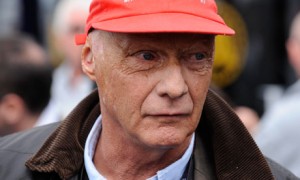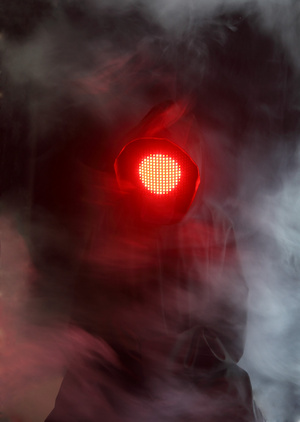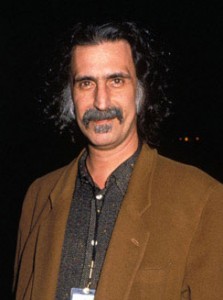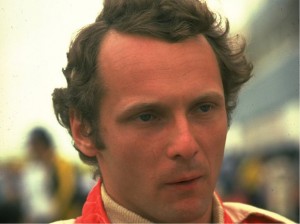 I have just completed Tom Rubython‘s satisfying re-telling of Formula One’s extraordinary 1976 season. It’s one of the most the most incredible stories, in sports or otherwise, that I’ve ever come across. No wonder Ron Howard and Peter Morgan are currently working on a big-budget Hollywood movie, not based on the book, but telling the same story.
I have just completed Tom Rubython‘s satisfying re-telling of Formula One’s extraordinary 1976 season. It’s one of the most the most incredible stories, in sports or otherwise, that I’ve ever come across. No wonder Ron Howard and Peter Morgan are currently working on a big-budget Hollywood movie, not based on the book, but telling the same story.
In 1976, 27 year-old Austrian Niki Lauda was the reigning champion of Formula One racing. Although people in the United States lack a taste for the sport, it is truly the most glamorous and elite version of auto racing on the planet. Lauda raced for Ferrari and had the car and the skill to defend his title, a feat that would instantly cement his reputation among the greatest drivers of all time.
But the British McLaren team, with their flamboyant, pot smoking, playboy driver James Hunt, had other plans. McLaren had a great car that year and, despite his extreme partying and womanizing, Hunt possessed extraordinary talent behind the wheel. From the beginning of the season, it was all about Lauda vs. Hunt, with the Austrian having the advantage going into the height of summer.
Formula One racing, even today, is all about going to the limit, the limit of what the rules will allow, the limit of what the car is capable of, the limit of what the driver can manage without losing his mind. A race course with straights and turns means constant breaking, accelerating and shifting. Going into a turn, for example, a driver may gain an advantage by breaking later. But if the driver breaks too late, the results could be fatal. There are similar decisions countless times through the course of just a single lap as the driver tries to wring the fastest time possible from the car.
But, what happened to Niki Lauda in Germany that summer, may not have been about pushing too hard, driving recklessly, or an improperly engineered car. It may have been any one of those things, but the cause of his magnificent crash remains largely unknown. What is clear is that Lauda was engulfed in flame, caused to inhale toxic fumes and nearly lost his life. Because he was using an illegal helmet, the burns to his head and face were particularly horrifying.
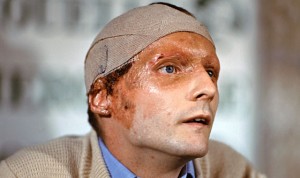 It is impressive that Lauda survived. But it is unheard of the he returned to the racetrack to drive in the Italian Grand Prix just six weeks later.
It is impressive that Lauda survived. But it is unheard of the he returned to the racetrack to drive in the Italian Grand Prix just six weeks later.
And that is why this story is so amazing. Here is a case of a man who went up to, and then well beyond, the limit of his physical and psychological capabilities. Lauda was so competitive and so possessed by the need to win that he further disfigured himself by donning his helmet (now legal) when his facial wounds were not yet healed.
If Lauda had won a second consecutive championship under such circumstances, we might talk about him the way we talk about Muhammad Ali, the greatest ever. But the way he lost makes the story even more intriguing. By coming back, he was able to maintain his lead over Hunt by the slimmest of margins, causing the last race to be determinative. But the Japanese Grand Prix was drenched by a downpour and, after just a couple laps, an emotionally and mentally spent Lauda stopped his car and got out. At the very end, after all he had been through, he simply could not go on in the rain. He couldn’t see because doctor’s weren’t done reconstructing his eyelids, which had been burned off. I shudder to think how he could have reeled himself in from the insanity that made him come back so soon, too soon, in the first place. For me, that return to sanity, from so far beyond the brink, is the true heroism of this story.
The movie probably won’t get it right. Ron Howard tweets about everything he’s doing to make it authentic, and he has what appear to be talented young actors to recreate this unique moment in the history of motorsport, but I will set my expectations low. In the meantime, we have books and videos on YouTube and even Mr. Lauda himself, who is regularly on the F1 circuit as a consultant for Ferrari. And while his insights into racing and his wily wit delight us, we will probably never know what really happened that year, the demons he faced, gave into, and then overcame.
